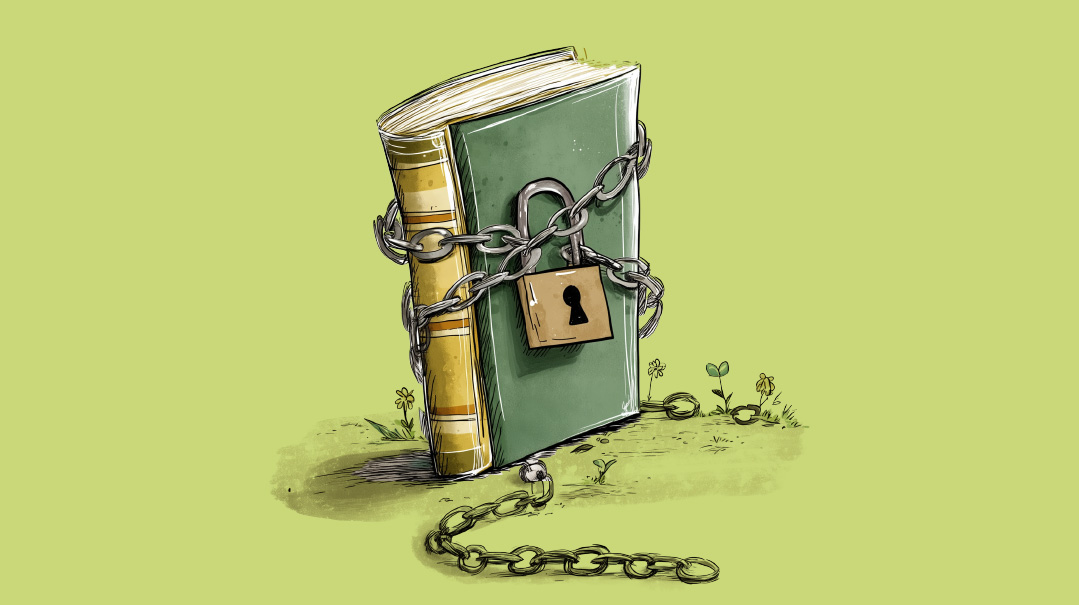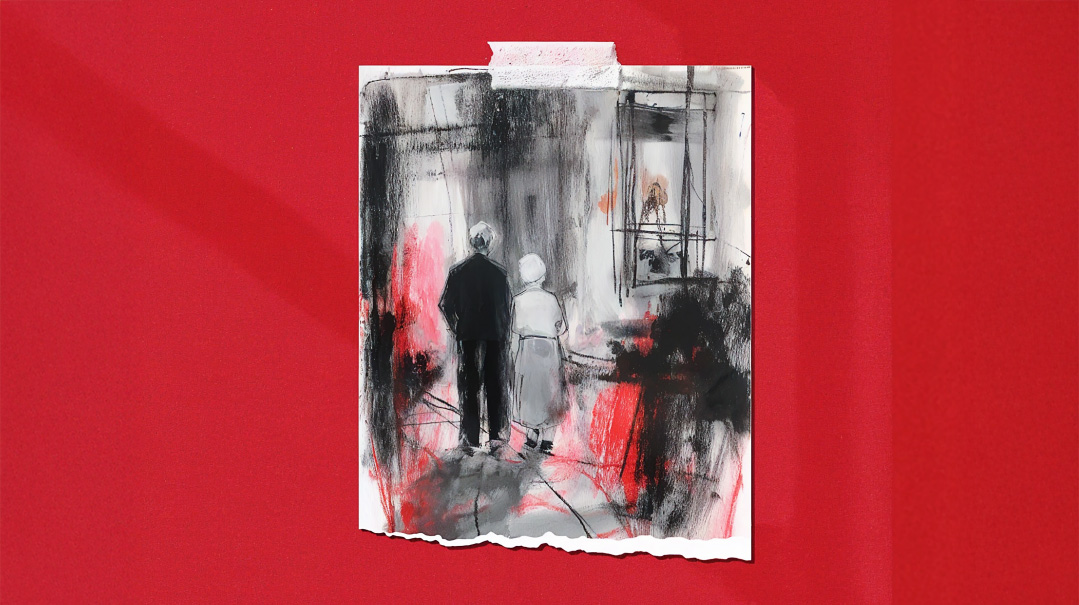Family First Inbox: Issue 892

Did your middos tovos fly out the window?!

Growing Up, Feeling Small [Forever High School / Issue 891]
Wow! Reading the article about the lasting impact of high school brought about some intense emotions. While I’m an accomplished person today, my high-school days were anything but. It was normal for me to spend the day sitting in the hallways doing nothing. Now I do anything but sit! Baruch Hashem I have a family, a husband, and three beautiful children, I’m in the chinuch world, and I give so much more to the small community I live in.
But still — talking to the people from my high school days makes me feel so “little” again. So empty, so dull, so vulnerable, lacking so much self-confidence. I wish I could make a bold announcement to all those people and show them how far I’ve come, how much I’ve accomplished since, and how much I continue to accomplish. But even a phone conversation with a teacher, friend, or principal evokes unpleasant feelings — and this article helped me understand why I can’t have a conversation with someone from my high school days without feeling small and low. You know what would feel good? For someone from back then to tell me how much I’ve accomplished when they didn’t believe I could.
S.G.
Lacking the Currency I Needed [Forever High School / Issue 891]
Even though I did have a decent high school experience, I had a really turbulent beis medrash/kollel experience.
As a man, I struggle with ideas such as, You don’t have to see yourself through high school eyes anymore, and high school currency is not the currency you need in real life, in the real world.
High School Currency was indeed the currency that was required for me to thrive in my tight-knit, community-based kollel, and it was the currency I was lacking.
I was torn between my desire to pursue Torah learning, and the torture of being faced with cliques, day in and day out, until I reached my breaking point and decided to graduate in my mid-twenties once and for all.
Name Withheld
It’s Situational [Whiplash / Issue 890]
Bruchy Hershkowitz, thank you for such a thought-provoking and honest article about the tension you feel over the different ways of serving Hashem. You grew up in a family that stressed mesorah and aseh tov, but married into one that focused more on sechar v’onesh, and the transition has been jarring.
You chose to end your reflection with an open-ended question, so I hope it’s okay to use that as license to comment. You say you have whiplash from all the back and forth. Maybe what you’re yearning for is to integrate both of these concepts more smoothly so that you’re not falling back and forth with force, but more seamlessly balancing two seemingly contradictory ideas.
I can’t help but think how appropriate this is for Sefiras Ha’omer. How do we make sense of these seemingly opposite channels through which Hashem works? Perhaps by accepting that Hashem is ultimately incomprehensible? We’ll never be able to fit Him in a box of this or that. He’s both chesed and gevurah. He’s All Kindness and the Judge of all judges at the same exact time. He gave us His Torah and these ways of “understanding” Him as tools to “view” Him for the purpose of serving Him and connecting to Him.
It's in your very capable hands to decide which to focus on — Hashem's gevurah or chesed — in each particular instance. Does it help you to serve Him by seeing Him as gevurahdig when you’d like your husband to stay home but know you want him to go learn? Does it help to look at Him as chesedig when you’re davening and pouring your heart out to Him? Both views of Him are correct and don’t contradict each other, because Hashem is both and all, and so much more than we can ever begin to fathom with our limited minds.
I believe that when we acknowledge and embrace this, when we keep our true goal in mind of serving and connecting with Hashem, then we can vacillate between each approach. We just need to ask the question: What in this moment will help me bring my all to Hashem?
C.S.
Single Parents Need Our Support [The Vilification of Azi Stein / Issue 890]
I was very saddened to read the story in which a single mother and her children were not welcomed into their new neighborhood. I felt that Azi’s neighbors should have been part of the process of helping the family integrate into the neighborhood. I know that you’re concerned about exposing your children to other influences, but your family has more to gain than lose by opening your homes and hearts. Please understand that the single moms and dads in our community need our support beyond just making Havdalah.
Our communities are geared toward a family unit model where single parents feel like they don’t have a proper place, and as we saw, this affects their children. What you can do for the single parents in your neighborhood is invite them in for meals and create relationships with the family so that they have someone they can go to when they need. This may include going to shul with the boys if their fathers aren’t available, or taking the daughters shopping if their mothers aren’t. Sometimes it’s about taking the extra step, like thinking about them during Yom Tov time, making sure they have a seat in shul for Rosh Hashanah and Yom Kippur, helping to arrange arba minim, sending them mishloach manos, or offering to sell their chometz.
Please don’t leave them isolated.
Shiffie Merzel
Passaic, NJ
Major Middos Failure [The Vilification of Azi Stein / Issue 890]
Dear Suri, Tziri, Hindy, and Devorah,
With all due respect, how in the world can you excuse the terrible hurt, pain, and devastation you caused to Azi Stein and his mother?! You say it was in the name of your children’s chinuch — that you did not allow your children to play with Azi because you were worried about the influences he would bring into your children’s lives. Complete dedication to your child’s chinuch is extremely noble. And yet, to me it seems clear that the only chinuch you taught your child is that it’s okay to tell a friend straight to his face that he’s a bad influence, that it’s okay to discard a friendship when it no longer suits your personal needs, that it’s okay to shame and pain a ten-year-old boy in public, that it’s okay to talk about him behind his back, and that even if the situation becomes so intolerable that a divorcée needs to actually pick up and move with her son, it’s all okay in the name of chinuch. Did your middos tovos fly out the window?!
Middos tovos is chinuch, too! What about the chinuch aspect of exploring solutions to a new issue that has developed? What about the importance of respectfully communicating your needs to Azi and his mother and trying to work out a solution to benefit both of you? What about the importance of asking a rav whenever a dilemma in your life comes up? What about simply using words to explain to your children why it’s better not to sing Burger King commercials (FYI, they’re just silly and happen to be sung to a super catchy tune) and to teach them a really great skill of redirecting a conversation?
You could have taught your boys that if Azi brings up movies, to switch the topic and modeled and role-played for them how to do it. You could have explained the concept of different standards in different homes and the reason we aspire to higher standards is so we can grow up to be healthy and successful in mind, body, and soul.
While Azi may have reasons that he watches sports, we don’t need to judge, but we do need to know it’s not for us. Where was the conversation?! You made a decision that Azi couldn’t play with your boys anymore and that was that! There was zero consideration of the bitter consequences of your decision. While the ideas suggested certainly take a lot more time and effort to implement, they would result in a true, everlasting chinuch that can be generalized to other occasions and incidents that will inevitably occur in your children’s future.
With the narrow-minded way you choose to deal with this situation, you taught your children to discard anything in their way that may inhibit their personal desires, however noble they may be, in spite of the devastating consequences their action will cause. It’s actually clear to me from the beginning of the story that middos tovos were never a priority, unfortunately. When Azi’s mother knocked on Suri’s door for Havdalah, why did she tell her to keep knocking every few minutes instead of inviting her inside? Or why didn’t Suri say, “I’ll send one of my kids to knock on your door when my husband comes home?” I truly fail to understand such belittling behavior on Suri’s part.
Should any of the boys’ mothers read this, I sincerely hope they will call Azi’s mother and beg her forgiveness. I hope they will tell their sons that they truly wanted the best for them, but in their haste to make a decision to safeguard their sons they erred and hurt another boy terribly, and that they must make every effort to make it up to Azi. I hope Azi and his mother will find a new neighborhood to settle down in and with Hashem’s help, see only success and nachas in their future.
Anonymous
Respect Goes Both Ways [The Vilification of Azi Stein / Issue 890]
I’m sure the story “The Vilification of Azi Stein” about neighbors who ostracized a young boy out of concern he was a bad influence on their children will attract a lot of attention, and the politically correct thing will be to tsk self-righteously at the way the poor divorcée and her innocent son were treated. So let’s be clear: The neighbors were clearly obnoxious in the way they spoke to their kids. The idea that people have different standards and that it’s important to uphold our boundaries can be conveyed in a much more sensitive way, and there’s no excuse for bullying.
At the same time, the narrator certainly shares part of the blame for the way the story played out. She is no doubt aware that her neighbors are a community that values insularity and distances itself from technology. Her disclaimers that it was “only” football, “just” commercials, and that the smartwatch has limited functionality are at best hopelessly naive, or at worst, condescendingly dismissive of others’ standards. Living among her neighbors, she knew that smart technology and secular media are major red lines. Expecting her neighbors to make allowances for her due to her challenging circumstances seems self-centered.
Was she treated kindly? No. Ideally, people’s standards in bein adam l’chaveiro would match their standards in bein adam l’Makom. At the same time, everyone needs to take responsibility for their own role in a situation. Respect goes both ways.
A Neighbor
From Ambivalence to Joy [The Next Chapter / Issue 889]
Ahava Ehrenpreis’ article, Leaving the Competition, about how she prepared to spend Yom Tov with her children instead of hosting them, truly resonated with me. For the first time in 42 years, I didn’t make Pesach as we traveled to our children out of town. As much as I looked forward to spending time with my grandchildren, I, too, felt ambivalent. Thank you, Ahava, for expressing it so beautifully. And for the inspiration to “relish the joy” of this new stage in our lives.
Beth Jawary
Los Angeles. CA
She Broke the Trend [Tempo / Issue 889]
I so appreciated Zisi Naimark’s fiction story, “Case in Point.” In the story, Rebbetzin Stern looked past Tzip’s exterior and saw her inner character and allowed her son to date, get engaged to, and eventually marry Tzip. I’m focusing particularly on Rebbetzin Stern’s acceptance of Tzip and not her son, Asher’s, because we all know it’s the boys’ mothers who call the shots in shidduchim.
Obviously, the story was written to the extreme, with Tzip behaving in a way that is extremely peculiar, but its message remains the same. Reading the line: “So Rebbetzin Stern had seen Tzip, too. More: she saw Asher seeing Tzip” was a breath of fresh air. In a community where girls in shidduchim are judged very heavily on superficial factors, reading about a mother breaking that trend was uplifting.
Let us all learn from Rebbetzin Stern and open up our minds and our hearts a little wider, and we should be zocheh to see many simchahs b’karov.
Name Withheld
(Originally featured in Family First, Issue 892)
Oops! We could not locate your form.







